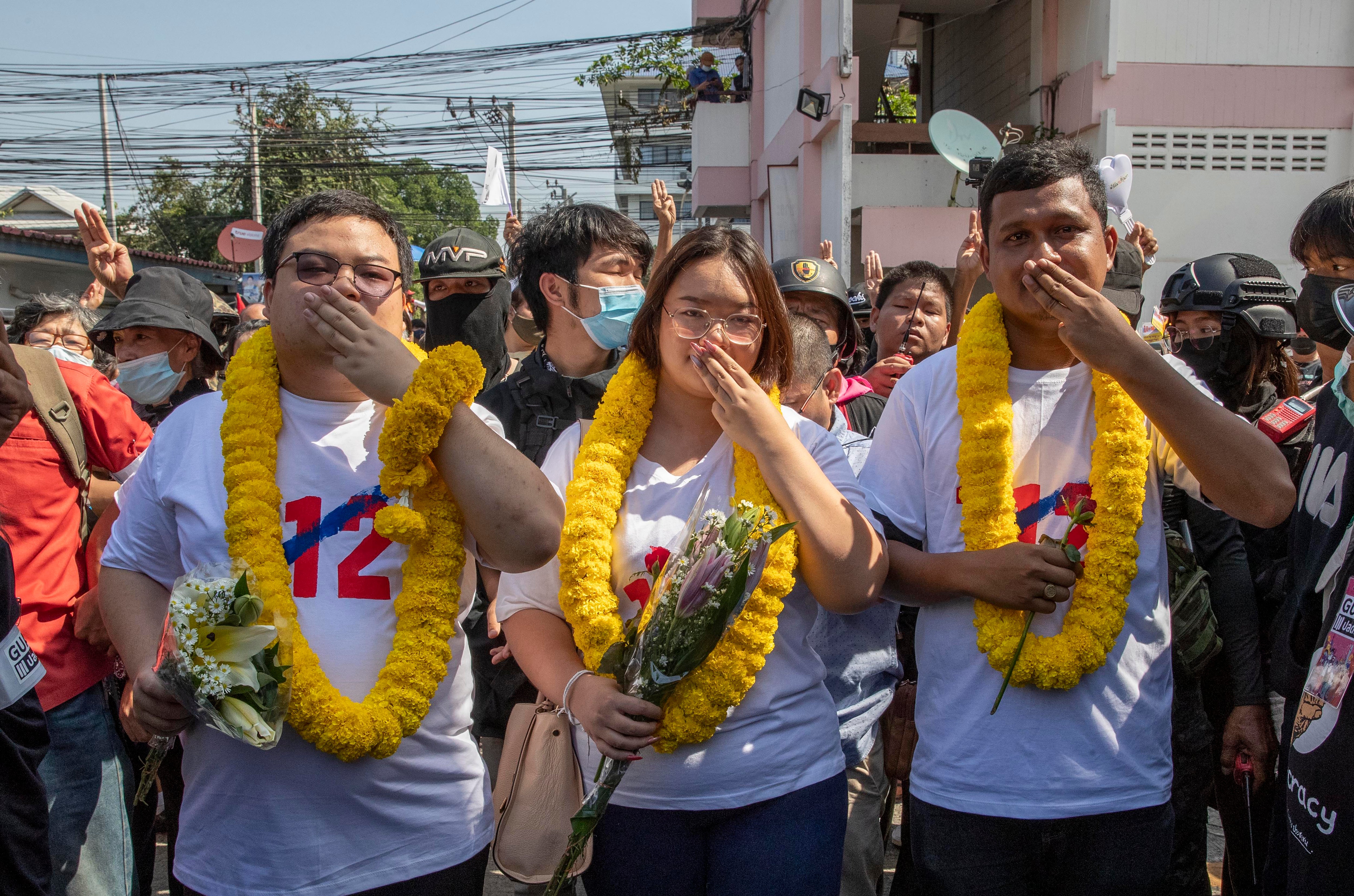Thai activists report to police over lese majeste charges
Four leaders of Thailand’s pro-democracy movement have reported to police to acknowledge charges that they defamed the king in their calls to reform the monarchy to make it more accountable

Your support helps us to tell the story
From reproductive rights to climate change to Big Tech, The Independent is on the ground when the story is developing. Whether it's investigating the financials of Elon Musk's pro-Trump PAC or producing our latest documentary, 'The A Word', which shines a light on the American women fighting for reproductive rights, we know how important it is to parse out the facts from the messaging.
At such a critical moment in US history, we need reporters on the ground. Your donation allows us to keep sending journalists to speak to both sides of the story.
The Independent is trusted by Americans across the entire political spectrum. And unlike many other quality news outlets, we choose not to lock Americans out of our reporting and analysis with paywalls. We believe quality journalism should be available to everyone, paid for by those who can afford it.
Your support makes all the difference.Four leaders of Thailand’s pro-democracy movement reported to police Tuesday to acknowledge charges that they defamed the king in their calls to reform the monarchy to make it more accountable.
The four protest leaders criticized the country’s lese majeste laws before entering a police station north of Bangkok, while around 100 supporters chanted “Cancel 112,” referring to the section of the Thai Criminal Code that forbids defamation of the monarchy.
“If the monarchy uses the law to shut our mouth, it means they are afraid of us telling the truth,” one of the leaders, Parit Chiwarak, told reporters. “I don’t think this will affect our movement. If anything, it will lead more people to come out.”
Parit has received six summonses related to defaming the monarchy this year. Complaints can be filed by anyone, and police are supposed to formally investigate each case.
Another of the protest leaders, Panusaya Sithijirawattanakul, said outside the police station that Thailand’s special laws protecting the royal family are unnecessary.
“If the monarchy is not happy when someone insults them, they can use the same laws that other people use,” she said.
Anyone who insults or defames key members of the royal family, including the king, queen, heir apparent or regent, can be sentenced to up to 15 years in prison on each charge under the country’s special laws.
After speaking with police for just over an hour, the four protest leaders, who also include Panupong Jadnok and Shinawat Chankrajang, were allowed to go.
Another 11 members of the pro-democracy movement, including Jatupat Boonpattarasaksa and Somyot Pruksakasemsuk, reported to police in other districts, facing their own charges related to defaming the monarchy.
Jatupat previously spent 2 1/2 years in prison for sharing a BBC article on Thailand’s king on his Facebook page. Somyot was editor-in-chief of a magazine and was previously imprisoned for seven years for publishing articles that were deemed insulting to the monarchy.
For months, the student-led protest movement has been campaigning for Prime Minister Prayuth Chan-ocha and his government to step down, the constitution to be amended to make it more democratic and the monarchy to be reformed.
The demands to reform the monarchy are radical and controversial because by tradition, the institution has been considered untouchable, one of the main foundations of Thai nationalism.
The protest movement has nevertheless emphasized reform of the monarchy as a key demand, and made it the theme of several of its rallies, which have attracted thousands of people, including many students.
The movement is led by several groups that have issued the same three demands. However, the Free Youth, one of the leading groups, wrote on social media late Monday that it planned to shift its focus solely to reforming the monarchy.
For the past three years, the lese majeste laws have not been enforced, but Prayuth, a former army general who initially came to power in a 2014 coup, said last month that it would be among the laws used against demonstrators going forward.